| 1) Phoenix dactylifera: The date palm tree: Nakhlat |
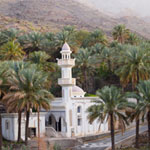 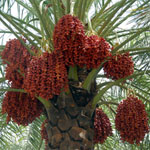 Ibn ‘Umar reported: “The Prophet (peace and blessings of Allaah be upon him) said: ‘There is a kind of tree whose leaves do not fall and it is like the Muslim. Tell me what it is.’ The people mentioned different kinds of desert trees … and I said to myself, ‘It is the date palm tree,’ but I felt too shy to speak up. Then the people said, ‘Tell us what it is, O Messenger of Allaah.’ He said: ‘It is the date palm tree.'” (al-Bukhari, 60). The tree next to which the Prophet (peace and blessings be upon him) used to preach Jabir ibn “Abdullah (may Allah be pleased with him and his father) reported that the Prophet (peace and blessings be upon him) used to go and stand next to a tree or palm-tree on Fridays. A woman or a man of the Ansar said: “O Messenger of Allah, should we not make for you a Minbar (“pulpit”)?” He said, “If you wish.” So they made a Minbar for him, and when the next Friday came, he was shown to the Minbar. The tree cried like a small child, then the Prophet (peace and blessings be upon him) came down and hugged the crying tree until it calmed down.” Jabir said: “It was crying because of the Dhikr (remembrance of Allah) that it used to hear.” (al-Bukhari, 3319). Dates, a fruit mentioned in Surah Maryam , grow in dry soil in warm climates and have many benefits. Allah indicates their healing power by telling Maryam, who was in labor, to eat dates: A voice called out to her from under her: “Do not grieve! Your Lord has placed a small stream at your feet. Shake the trunk of the palm toward you, and fresh, ripe dates will drop down to you. Eat and drink and delight your eyes …” (Surah Maryam: 24-26) |
| 2) Olea europea: The Olive Tree: |
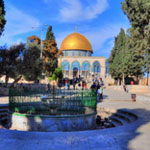 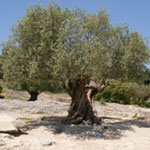 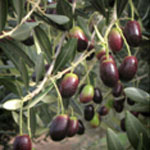 In Soorat al-Mu’minoon, Allaah says (interpretation of the meaning): “And a tree (olive) that springs forth from Mount Sinai, that grows oil, and (it is a) relish for the eaters.” [al-Mu’minoon 23:20] Abu Aseed said: “The Prophet (peace and blessings of Allaah be upon him) said: “Eat the oil and use it on your hair and skin, for it comes from a blessed tree.” (Reported by al-Tirmidhi, 1775; see also Saheeh al-Jaami’) He sends down water from the sky. From it you drink, and from it come the shrubs among which you graze your herds. By it He makes crops grow for you, as well as olives and dates and grapes and fruit of every kind. There is certainly a Sign in that for people who reflect. (Surat An-Nahl: 10-11) |
| 3) Cedrus libani: The Cedar Tree: Sidrah |
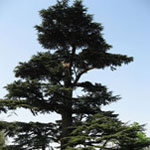 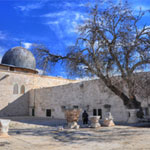 Abu Hurayrah said: “The Messenger of Allaah (peace and blessings of Allaah be upon him) said: ‘The example of the believer is like that of a plant which is continually bent over by the wind; the believer is continually beset with afflictions. The example of a hypocrite is like that of the cedar tree, which does not yield until it is uprooted in one go.” (Muslim, 5024) |
| 4) Punica granatum: The Pomegranate: Rumman |
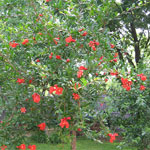 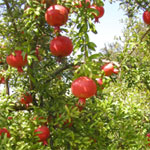 In the Quran, pomegranates, are mentioned as one of the gifts of Allah: “It is He who sends down water from the sky with which we bring forth the buds of every plant. From these we bring forth green foliage and close growing grain, palm-trees laden with clusters of dates, vineyards and olive groves, and pomegranates alike and different. Behold their fruits when they ripen. Surely in these there are signs for true believers.” Al-An’_ am 6:99 |
| 5) Tamarix aphylla: Tamarisk: Athl, Tarfa, Gaz |
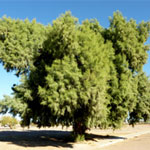  In the Koran, tamarisks are used to describe the notion of a degraded environment: “So we let loose upon them the waters of the dam and replaced their gardens by two others bearing bitter fruit, tamarisks, and a few nettles [sometimes translated as stunted lote trees]” (Sura 34:16). |
| 6) Celtis australis: The Lote Tree: |
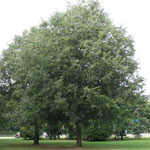 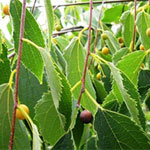 In the Koran, tamarisks are used to describe the notion of a degraded environment: “So we let loose upon them the waters of the dam and replaced their gardens by two others bearing bitter fruit, tamarisks, and a few nettles [sometimes translated as stunted lote trees]” (Sura 34:16). |
| 7) Vitis vinifera: Grapes: |
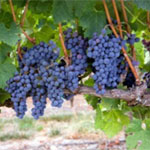 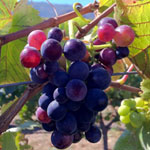 By means of it We produce gardens of dates and grapes for you, in which there are many fruits for you and from which you eat. (Surat al-Mu’minun: 19) |
| 8) Ficus carica: Fig: Al – Teen |
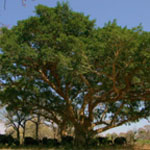 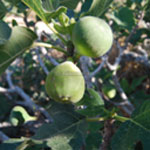 By the fig and the olive, and the Mount of Sinai, and this secure city, We indeed have created man in the finest form When We brought him down to the lowest of the low except for those who believe and do righteous deeds for theirs shall be an unfailing recompense Who, then, can give you the lie as to the Last Judgement Is not Allah the most Just of judges? (Surah: 95) |
| 9) Acacia seyal : Acacia: Talh |
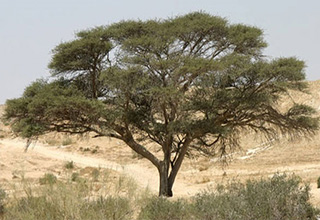 The tree of Sidrah on the sixth and seventh skies (Surah Najm) was the one, which was the tallest of the area and one of the most beautiful creations of God, and of course this plant was the subject of description and glory of most of the Prophet. The same tree has been mentioned in another Surah (Waqia) when Scene of Paradise is projected, and the word Sidre-Makhdud meaning thornless Sidrah, has been mentioned because in the next sentence of the same Surah, the tree named Talha is mentioned which is a thorny tree i.e. Acacia seyal. Obviously in Surah Saba, the description of Sidrah now becomes very clear when it is said that only three types of trees escaped devastation by floods, otherwise all the garden were completely destroyed. These were Khamt (Salvadora persica), Athl (Tamarix aphylla) and Sidrah (Cedrus libani), all of them being deep-rooted strong trees and hence their survival during the flood of Eram at Ma’arib is a most logical and natural episode. |
| 10) Salvadora persica: Tooth Brush Tree: Khamt, Miswak,Arak,Khardal |
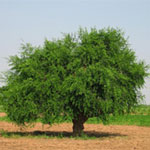 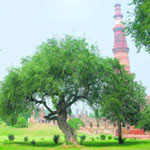 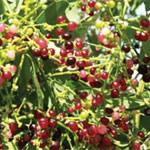 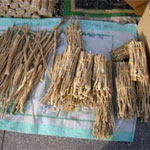 References from Ahadith: Hazrat Jabbir Bin Abdullah (Radiyallah Anhu) narrates that Rasulullah (Sallallahu Alayhi Wassallam) said, “The black coloured Kapas (fruit of Salvadora) is the best (finest) one” Hazrat Aaisha (Radiyallah Anha) narrates that Rasulullah (Sallallahu Alayhi Wasallam) said, “Miswak purifies the mouth and is a cause of Allah’s pleasure” Hazrat Abu-Hizat-us-Sabahi (Radiyallah Anhus) gave him a twig of Salvadora (Al-Arak) and said, “Use it as miswak” |
| 11) Musa paradisiaca: Bananas |
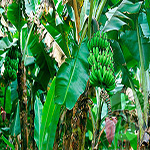 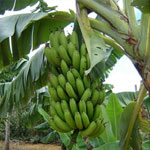 Bananas are also mentioned in the Qur’an as one of the fruits of Paradise: Amid thornless lote-trees, and banana-trees (with fruits), one above another. And extended shade, and water flowing constantly, and abundant fruit, neither intercepted nor forbidden. (Surat al-Waqi’a: 28-33) |
| 12) Alhagi maurorum: Al – Mann, Manna |
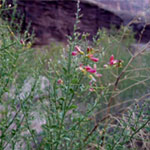 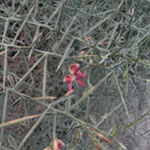 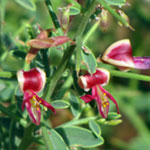 A saccharine food which Allah provided to the children of Israel when they were wandering in the Sinai desert after their exile from Egypt. [2: 57]; [7:160]; [20:80-81] |
| 13) Ocimum basilicum: Sweet Basil: Al – Rehan |
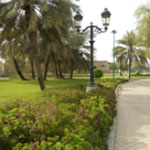 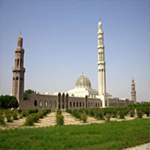 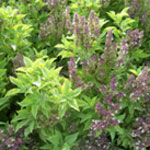 The plant is a gift and favor of Allah in Paradise. (60-12; 61-89) |
| 14) Lagenaria siceraria: Gourd: Yaqtin |
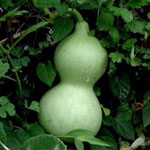 The story of Prophet Yunus (Jonah) (PBUH) shows that out of the fish, Allah caused a plant, from the Gourd kind, to grow over him. (37: 139-146) |
| 15) Brassica nigra: Mustard: Khardal |
 Mustard’s seed is given as an example of smallest thing or event.(21-47; 31-16) |
| 16) Cucumis melo: Cucumber: Qiththa |
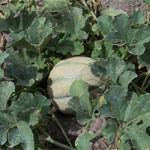 Prophet Muhammad (PBUH) would have eaten fresh date with cucumber together. (2:61) |
| 17) Lawsonia inermis: Henna, Camphor: Kafur, Kopher, Henna, Yoranna, Hinnan |
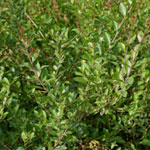 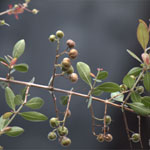 A wine with a flavor of kafur is consumed by the inhabitants of Jannat without the harmful effects, being different from the earthly camphor. Scholars think the camphor of Qur’an is actually the word Copher which means Henna. There are several references about prophet Muhammad (PBUH) asking people to use kafur over the dead body for last rites, after the final bath. Henna was much more common that camphor in Arabic of the 6th century, and the camphor was equal to that of gold. (LXXVI:5) |
| 18) Honey |
 You’re Lord revealed to the bees: “Build dwellings in the mountains and the trees, and also in the structures which men erect. Then eat from every kind of fruit and travel the paths of your Lord, which have been made easy for you to follow.” From inside them comes a drink of varying colours, containing healing for mankind. There is certainly a Sign in that for people who reflect. (Qur’an, 16:69) |
| 19) Zinziber officinale: Ginger: Zanjibil |
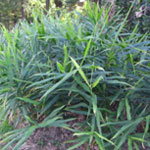 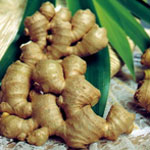 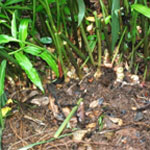 It is one of the food the Jews hate in Egypt during their enslavement along with onion (Basal), Garlic (Fum), Cucumber (Qiththa), Vegetable (Baql). (2:61) |
| 20) Lens culinaris: Lentil: Adas |
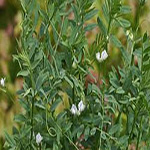 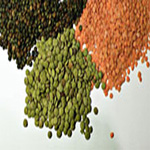 It is one of the food the Jews hate in Egypt during their enslavement along with onion (Basal), Garlic (Fum), Cucumber (Qiththa), Vegetable (Baql). (2:61) |
| 21) Allium sativum: Garlic: Fum |
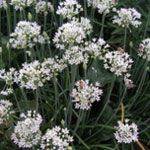 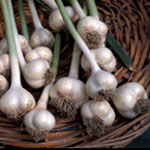 In Arabic, garlic is called Soom contrary to the Noble Qur’an. (2:61) |
| 22) Allium cepa: Onion: Basal |
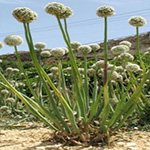 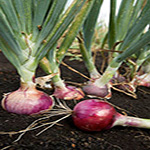 Prophet Muhammad (PBUH) disliked the smell of garlic and onion and advised his followers to refrain from eating them before entering the mosque for fear of disturbing others. (2:61) |
| 23) Euphorbia resinifera: Al – Zaqqum |
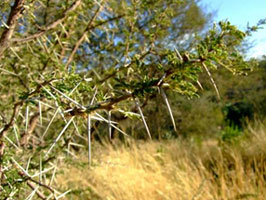 Zaqqum is a tree of hell and poisonous food for sinners. It is a thorny plant with bitter taste. It is also called in the Qur’an Shajr al-Maluna, i.e., ‘Cursed Tree’. ( 17: 60; 37: 62-68; Dukhan: 43-48; Waqia: 52-56) Eight doors of Jannah. These are eight grades of Jannat Jannatul Mava Darul Maqaam Darul Salaam Darul Khuld Jannat-ul-Adan Jannat-ul-Naeem Jannat-ul-Kasif Jannat-ul-Firdous There will be gardens in Jannah. Every garden will have the length of about 100 year’s journey. The shadow of these gardens will be very dense. Their plants will be free of thorns. The size of their leaves will be equal to ears of elephants. Their fruits will be hanging in rows. Jannatul Mava is in the lowest, Jannat-ul-Adan is the middle & Jannat-ul- Firdous is on the highest. One bunch of dates will be equal to the length of 12 arms. The size of a date will be equal to the big pitcher. These will be whiter than milk, sweeter than honey and softer than butter and free of seeds. The stem of these plants will be made up of gold and silver. There will also be gardens of grapes. The bunches of grapes will be very big. The size of a single grape will be equal to a big pitcher. Someone asked, ya Rasulullah (Sallalahu alaihi wasallam): will it be sufficient for me and my family. It was answered, it will be sufficient for you and your whole tribe. Trees (plants) with foul-smelling “fruits” after eating which the Muslims are forbidden to come to the mosque Jabir said: “The Messenger of Allah (peace and blessings be upon him) said: ‘Whoever eats of these vegetables (the first time he said ‘garlic,’ then ‘garlic, onions and leeks’), let him not come near us in our mosques, for the angels will be offended by whatever offends the people.'” (al-Nasa’i, 700) |
Bhu Sanjeevani
